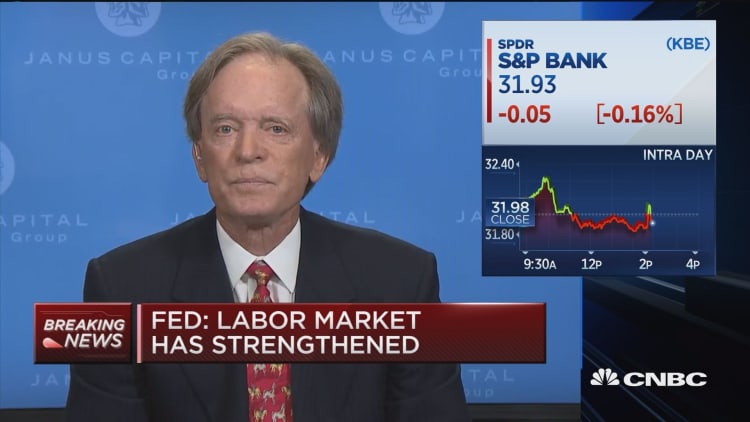
Near-zero interest rates aren't good for the economy in the long run, bond guru Bill Gross said Wednesday.
That's because low rates hinder the ability of savers to earn a return on their money, and that impedes investment, he said.
"Capitalism can't really thrive," the manager of the Janus Global Unconstrained Bond Fund said in an interview with CNBC's "Power Lunch."
"Ultimately in terms of real economic growth, an economy needs certainly a positive interest rate and maybe even a close to positive real interest rate in order to function normally," he said.
On Wednesday, the Federal Reserve opted to not raise interest rates, instead keeping its overnight rate target in the 0.25 percent to 0.5 percent range.
However, the central bank noted the labor market has strengthened and said other indicators were pointing to growth.
Gross believes the Fed is dividend.
"I think some of the Fed are beginning to believe, as I've suggested for the past several years, that interest rates at near-zero percent levels have a negative affect at some point on the real economy."
He thinks those members would be comfortable with a 25 or 50 basis point increase, despite a possible near-term effect on equity prices.
When rates finally do rise, Gross said money can be made in assets like gold, real estate and real estate investment trusts that would move up with inflation.
— CNBC's Jeff Cox contributed to this report.


